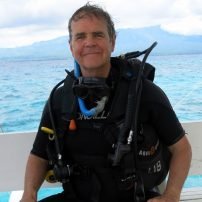
Coldfish
Potential benefits and risks of borealisation for fish stocks and ecosystems in a changing Arctic Ocean
Overview
The Coldfish project uses fish species in the Barents Sea sector of the Arctic Ocean to help understand how the large-scale ecosystem structure responds to changes in summer sea-ice extent and fish community structure driven by climate change.
Opening up of Arctic waters with the loss of sea ice cover will affect the sources and fluxes of organic carbon which are extensively mediated by fishes. The warming is also making it possible for fish species from warmer waters to move northward; some native Arctic species have declined in abundance. Among these species, the native Arctic cod and immigrant Atlantic cod support fisheries, which constitute the most direct benefit that society derives from these high-latitude waters.
The project explores how fish diet and metabolism differ across an ecologically wide range of sites in the Barents Sea. By comparing local populations of fishes living under different conditions, we will be able to reflect on the current state and potential future states of the marine ecosystems involved. In particular we will ask:
- What role do fishes play in connecting surface and seafloor ecosystems in different environments and communities, and might this be affected by changes in sea-ice extent?
- Do fish species vary in the breadth of their diets, to what extent do the diets overlap and how might the food-webs of Arctic species be affected by those from further south in response to a warming Arctic?
- What is the relative energetic cost to resident and invading fish species of environmental and ecological changes in a warming Arctic, and thus what might happen to these populations in future?
This project is co-funded by the German Federal Ministry of Education and Research and by UKRI NERC.
Professor Nicholas Polunin, Lead Investigator of Coldfish:
“The Arctic region provides some of the starkest examples on the planet of how nature is being transformed by anthropogenic climate change. Our team will yield valuable understanding of how fishes as important mediators in Arctic food webs might shift in their ecology with climate change, and help to model consequences for significant fisheries and wildlife.”
Lead Investigators
-
 View full profile
View full profileProfessor Nicholas Polunin
Co-lead investigator, Newcastle University
I am primarily a macro-ecologist interested in large-scale patterns of marine benthic community structure and drivers of these, especially those of food webs as revealed by stable isotope data. My recent work includes a wide range of locations including the Southern Ocean, North Sea and Indian Ocean, and this has long had strong links with policy and with other disciplines including the social sciences. I am the co-lead investigator of the Coldfish project.
-
 View full profile
View full profileDr Hauke Flores
Co-lead investigator, Alfred Wegener Institute (AWI)
Dr Hauke Flores is a sea ice ecologist and group leader at AWI. He has been working as a scientist on sea ice-influenced ecosystems in the Polar Oceans since 2009. Hauke is co-lead investigator of the Coldfish project. In the project, he supervises junior team members, coordinates the exchange of project results between UK and German partners, and facilitates exchange with other projects at AWI, especially regarding MOSAiC, ensuring that project results are made available to decision makers.
Related Articles
-
UK and Germany combine forces to fund crucial Arctic science
For the first time, the UK and Germany have joined forces to investigate the impact of climate change on the Arctic Ocean. The UK’s Natural Environment Research Council (NERC) and Germany’s Federal Ministry of Education and Research (BMBF) have jointly invested almost £8 million in 12 new projects to carry… Read more
03 July 2018

